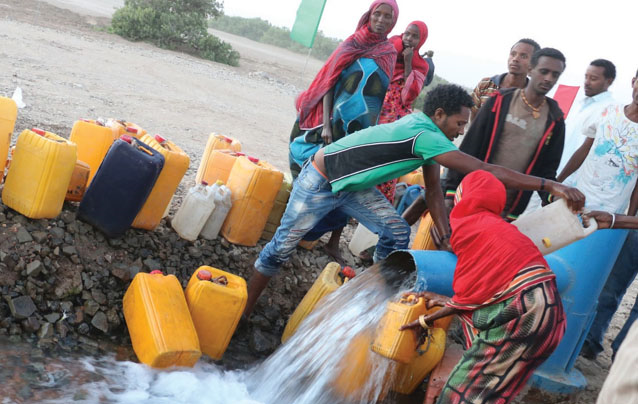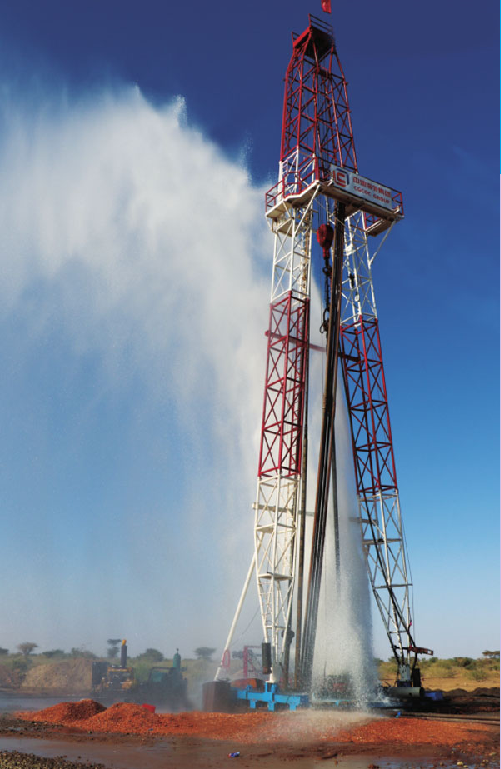
Ethiopia, as it is clearly stipulated in its foreign affairs and national security policies and strategies, aspires to strengthen relationships and partnership with its neighboring countries and beyond in various spheres in a manner aligning with its national interest and with the principle of ‘mutual benefit.’
As part of this intent, the country has been working to deepen strong partnership and cooperation with neighboring countries in the social, economic and political arenas, thereby achieving common goals and mutual benefits.
With a view to realizing this and addressing social and development challenges, it has been practically carrying out activities to elevate cooperation and integration with countries of the Horn and the region to new heights; and promoting the principle of win-win partnership and mutual development.
Mainly, through the establishment of various infrastructure developments including the enhancement of cross-border roads connectivity, enhancing provision of energy and safe potable water to neighboring countries, Ethiopia has been working to strengthen economic and social services integration and address common public challenges in a sustainable way, to accelerate regional integration, and grow their economies by resorting to collective efforts.

The infrastructure development paces that the country has made so far and the agreements it reached with neighboring countries just to mention with Sudan, Djibouti, Kenya and South Sudan, show Ethiopia’s commitment to create strong economic and social service integration in the Horn region and beyond.
In turn, over the past few years, the country has been able to successfully carry out activities that are instrumental to reinforce social services integrity with neighboring countries and to realize the aspirations.
Recently, the Ministry of Water and Energy announced a plan to increase the amount of water safe drinking water supply to Djibouti.
As it was stated by the Ministry recently and ENA reported, Ethiopia will increase the amount of safe drinking water it delivers to Djibouti from the existing 20,000 to 100,000 cubic meters per day.
The Ethio-Djibouti cross-border potable water project is a manifestation of regional mutual development that economically integrates the people of the two countries which share similar identity, it was indicated.
The Ethio-Djibouti cross-border clean water project was initiated six years ago through funds obtained from the government of China based on the water supply agreement reached between the two countries. The primary water source for Djibouti comprises 28 subterranean wells drilled in the Somali region. This essential resource is supplied by a 258-kilometer-long infrastructure, crossing seven towns from the Shinile Zone to Milo-Harewa-Adigala- Lasarat – Ayesha -Dewele towns to reach Djibouti city.
Delegations of the two countries led by the Minister of Water and Energy Eng. Habtamu Itefa (PhD) and Director General of the Djibouti Consulate in Dire Dawa, Ambassador Mussa Haji Jemal, visited Adigala Town in Somali region and its surroundings where they observed the project’s activities.
After assessing the overall current situation of the project and the improvement works, the two sides have set a direction for the implementation of the improvement works and to resolve the challenges in connection to the water line within a short period of time. A discussion was also held to deal with illegal activities on the waterlines and an agreement was reached to solve the problems.
Speaking on the occasion, Minister of Water and Energy, Eng. Habtamu Itefa (PhD) said that the people of Ethiopia share a common culture, religion and language. Utilizing resources together for mutual benefits will facilitate common development within the region and enhance regional connectivity.
In this regard, the Djibouti Potable Water Project is economically integrating the two nations’ people which share similar identity. The project is also one of the showcases of regional shared development and growth.
Mentioning that Ethiopia is sharing its natural resources with neighboring countries, he expressed his belief that in a manner neighboring countries develop and prosper together; Ethiopia will also grow and develop.
“Ensuring a shared development and mutual benefit is Ethiopia’s main intention in the region. Hence, the country is exerting its utmost contribution to enhance mutual development among communities of its neighbors with similar identities by even sharing from its meager resources. Ethiopia has a firm stance that is grounded on the principle of give and take, to prosper together by sharing the challenges and blessings for mutual development,” the Minister remarked.
According to the Minister, the ever-growing ties between Ethiopia and Djibouti through various infrastructures is a model for regional integration. The water project is the real demonstration of the integration he reiterated.
Mentioning the development activities being carried out by Ethiopia to supply potable water and renewable energy sources to countries in the region, he said that Ethiopia’s long-term aspiration is to realize shared development with its neighbors.
As he elucidated, the project was previously used to produce about 20,000 cubic meters of water each day using oil energy to draw water from the well, the Minister said that however, hereafter because it will be powered by electricity instead of gas, the project will supply 100,000 cubic meters of water. As to him, following the activities carried out to improve the service, it was enabled to increase the amount of the supply.
Stating that the project improvement activity is expected to be completed within a month, the Minister affirmed that it would be able to supply the intended amount of water to the people of Djibouti.
Director General of the Djibouti Consulate in Dire Dawa, Amb. Mussa Jemal said for his part that Ethiopia and Djibouti have been connected by railways, roads, electricity, water and other infrastructures.
The connection of the two countries with various infrastructures will increase the opportunities to prosper together as the economic ties will continue to be strengthened in the future, he underscored.
The Ethio- Djibouti water development project has been providing an immense contribution to minimize the water needs of the people of Djibouti, the Director General remarked.
Including Water and Energy State Minister Amb. Asfaw Dingamo (PhD) and Energy Development Minister Eng. Sultan Wali (PhD), the field visit was attended by senior officials from the Ministry.
BY ELIZABETH MENGISTU
THE ETHIOPIAN HERALD TUESDAY 23 JANUARY 2024





